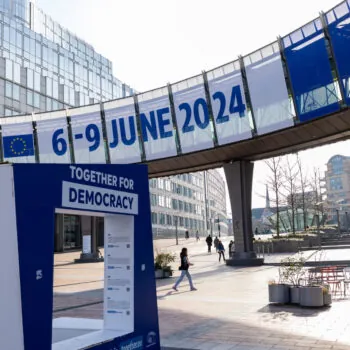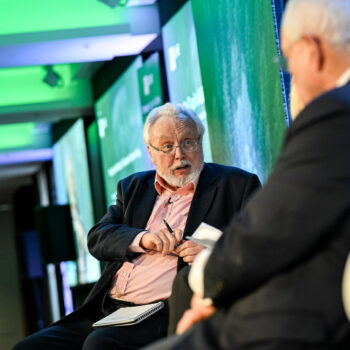An investigation has uncovered a process within the Green Investment Bank (GIB) establishing corporate structures commonly used in preparations for ‘asset-stripping’, ahead of its purchase by controversial Australian bank Macquarie from the UK Government for an estimated £2bn.
-
Evidence uncovered of potential preparation for ‘asset stripping’ of GIB will add to concern around the deal from former ministers Greg Barker and Vince Cable and business figures such as Richard Branson.
-
Macquarie preferred bidder despite track record of UK ‘asset stripping’ activity linked to other UK infrastructure acquisitions including M6 & Thames Water.
-
Green groups add voice to calls on Government for sale to Macquarie to be stopped.
Evidence unearthed by think tank E3G and Greenpeace UK, will add to mounting concern around the sale from leading MPs including former ministers Vince Cable and Lord Barker of Battle, alongside business figures such as Richard Branson.
Sometimes referred to as the ‘Vampire Kangaroo’, Macquarie is known for buying up British companies, running down their capital base and loading the companies with large debts, while extracting dividends and engaging in large scale tax avoidance. Recent examples in the UK include Thames Water and the M6 Toll Road.
Between 22 November and 1 December 2016, 10 new companies – corresponding to the GIB’s largest assets – were incorporated and registered to GIB’s London offices. This sudden proliferation of companies is uncharacteristic of the GIB, which has to date had a simple, stable and transparent structure. The establishment of holding companies, and multiple corporate layers, is often synonymous with practices such as leveraging excessive debt, asset stripping and financial engineering, including tax avoidance measures. A separate investigation by the Sunday Times concluded that over an eight-year period Macquarie and its investment partners paid only £1.8m in tax, despite banking £2.2bn in dividends and interest payments on its then four biggest British assets (1). This is equivalent to a tax rate of 0.01 percent.
Sepi Golzari-Munro, Head of the UK Programme at E3G said:
“These findings make it incumbent on the Government to stop and seriously question whether this sale is in line with its new, post-Osborne priorities – there are better alternatives which could instead promise productive investment in the UK economy and protection for the taxpayer.”
The sale of the GIB was instigated by George Osborne in 2015, but is the first privatisation under Theresa May’s tenure as Prime Minister and has attracted widespread opposition.
Doug Parr, Policy Director at Greenpeace UK said:
“At a time of massive political uncertainty over Britain’s future financial position after Brexit, it is foolish to be selling off the Green Investment Bank that could help deliver the proposed industrial strategy and drive investment into the growth sectors of the 21st century economy. Worse is that the takeover now seems to be potentially benefiting the socially useless side of banking, with asset stripping and offshoring of revenues at centre stage. It will provide income for the overseas owners, but the prospect of it driving useful investment into UK economy looks far from certain.”
With the sale announced by Sajid Javid in June 2015 as then business secretary, his successor Greg Clark has the opportunity to put a stop to the sale, and review the entire process currently being led by UK Government Investments, a branch of Her Majesty’s Treasury. The signing of the deal is due in late January.
The term "asset stripping" means breaking up a company and selling off its most profitable parts, even if that is not in the company's long-term interests.
GIB as at 31 March 2016:

GIB 1 December 2016:

ENDS
Notes to editor:
1. http://www.thesundaytimes.co.uk/sto/business/article1210967.ece
2. Given the transfer of the GIB into private ownership, certain commitments as part of the deal would ensure Macquarie ownerships remains aligned with the banks intended purpose. Commitment of most relevance would include: maintaining GIB as a single enduring institution; deploying at least £4bn in new capital into the UK's low carbon economy over the next 3 years and keeping the GIB at the forefront of the green infrastructure market, with a focus on innovation.
Contact:
(Ms.) Sepi Golzari-Munro, Head of the UK Programme, E3G – +44 (0)7915451305 & sepi.golzari.munro@gmail.com
(Dr.) Doug Parr, Policy Director, Greenpeace UK – +44 (0)7801 212973 & doug.parr@greenpeace.org.


